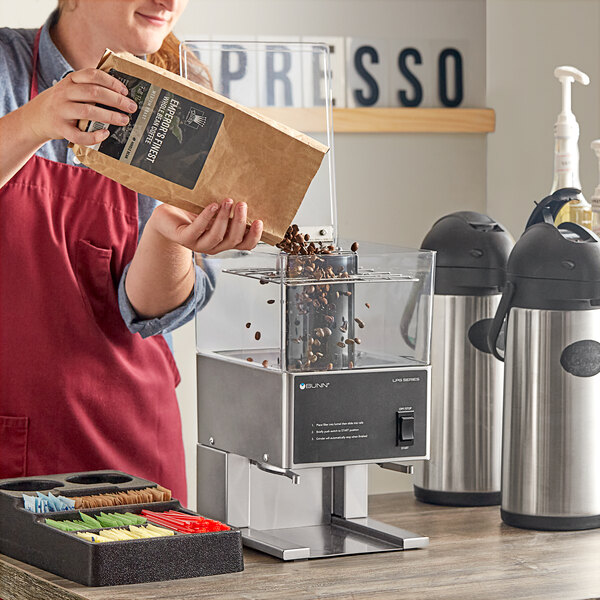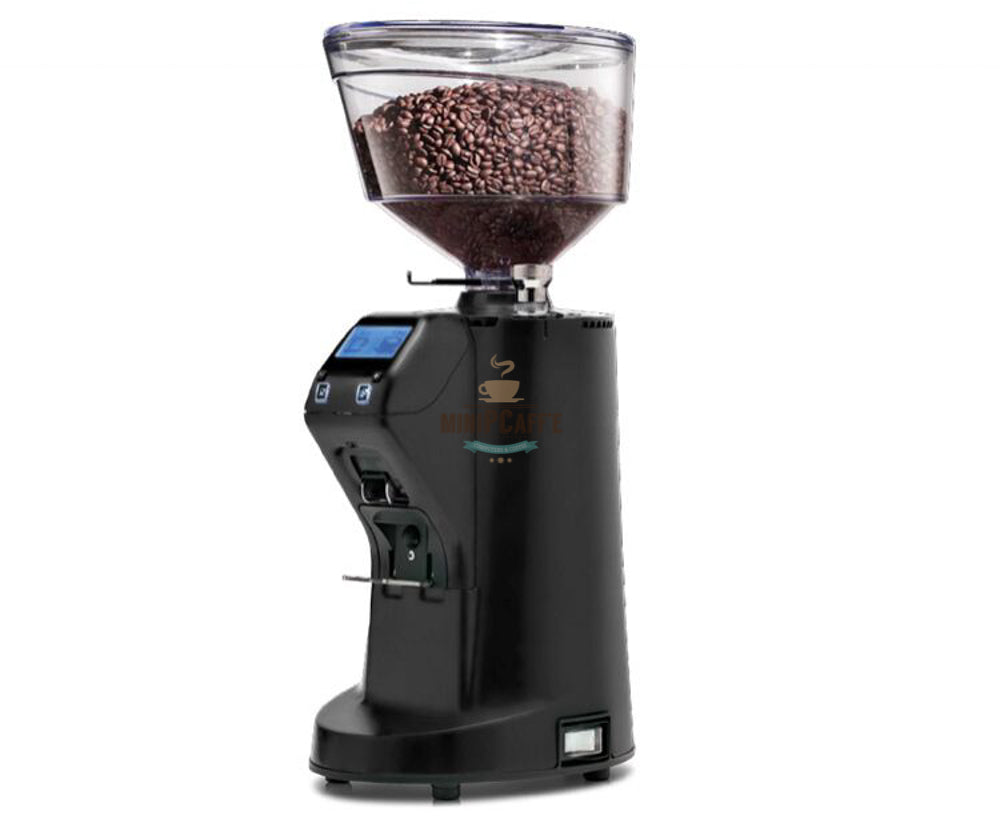Just How to Choose the Perfect Industrial Coffee Mill for Your Business
Picking the perfect commercial coffee mill for your business is a complex choice that needs cautious consideration of several critical factors. Furthermore, comprehending the different types of mills available can substantially influence your functional efficiency.
Assess Your Grinding Demands
When selecting an industrial coffee mill, one have to initially analyze their grinding needs to ensure optimum efficiency and uniformity. This initial examination involves comprehending the quantity of coffee to be processed daily, along with the preferred work dimension for numerous brewing approaches. A high-capacity grinder may be essential for services offering big quantities of coffee, while smaller operations might find a much more small design adequate.
In addition, it is crucial to take into consideration the kinds of coffee beans being made use of, as various beans may require particular grinding methods to achieve the best taste account. For instance, oily beans may require a grinder designed to take care of such features without overheating or clumping.
Another vital element is the required work consistency. Specialty coffee organizations commonly demand exact grind dimensions to boost extraction and flavor, making it essential to choose a mill that can provide uniform outcomes. Lastly, assessing the available area and electrical needs will help in picking a grinder that fits seamlessly right into your operational process. By thoroughly analyzing these aspects, businesses can make educated choices that align with their coffee grinding demands, ultimately resulting in a superior product and completely satisfied customers.
Understand Grinder Types
Comprehending the various kinds of industrial coffee grinders is critical for making a notified option that satisfies particular functional needs. There are mostly 2 groups of grinders: blade grinders and burr mills.
Blade grinders use spinning blades to slice the coffee beans, leading to an inconsistent work dimension - Industrial Coffee Grinder. While they might be much more inexpensive, they are commonly not ideal for commercial applications where accuracy is important
On the various other hand, burr mills supply an extra consistent grind by squashing the beans between two surface areas. They can be further categorized into level burr and cone-shaped burr grinders. Apartment burr grinders provide a regular grind size and are generally preferred for espresso prep work, while cone-shaped burr mills are flexible and can handle a variety of mixture techniques, from coffee to French press.
When picking a mill, take into consideration the specific requirements of your service, including preferred work uniformity, production volume, and the sorts of coffee drinks you intend to supply - Industrial Coffee Grinder. Each grinder kind has its restrictions and advantages, so understanding these nuances makes it possible for notified decision-making that aligns with functional objectives
Evaluate Grind Size Consistency
Accomplishing work size consistency is crucial for producing top notch coffee, as variants in particle dimension can significantly impact extraction and taste. When choosing a commercial coffee mill, it is critical to examine just how well the equipment keeps harmony in grind dimension throughout various sets. Inconsistent work dimensions can lead to irregular extraction, leading to a mug that may taste excessively bitter or weak.
To evaluate work dimension consistency, consider mills with features such as flexible grind setups and top notch burrs. Burr grinders, particularly, master creating consistent particle dimensions contrasted to blade grinders. The material and form of the burrs play an important function, with stainless-steel and ceramic options offering sturdiness and precision.

Take Into Consideration Manufacturing Ability
In the fast-paced world of coffee production, thinking about production capability is vital for organizations intending to fulfill need without compromising high quality. The manufacturing ability of a commercial coffee mill straight affects a firm's capacity to fulfill orders efficiently, manage inventory, and respond to fluctuating market trends.
When evaluating manufacturing ability, it is crucial to assess the grinder's output rate, generally determined in pounds per hour. This dimension needs to straighten with your service's forecasted sales quantity and growth targets. As an example, a café with a high turnover might call for a grinder that can process a number of hundred extra pounds daily, while a smaller operation could be sufficient with a lower capacity model.
In addition, take link into consideration the sort of coffee being processed. Different beans and blends may impact grinding rate and effectiveness, necessitating a mill with the ability of handling varied production demands. It's also worth considering the grinder's ability to preserve consistent top quality under high output problems, as any kind of changes can influence the end product.
Eventually, picking a grinder that matches your service's production ability will guarantee you remain browse this site competitive and receptive to customer expectations.

Spending Plan and Maintenance Elements
When assessing the appropriate industrial coffee budget, upkeep and mill elements play a substantial role in the overall decision-making process,. A preliminary financial investment in a top quality mill can yield long-term advantages, however it's important to establish a clear spending plan that aligns with your company's operational requirements. Take into consideration both the acquisition rate and possible operational costs, such as energy consumption and replacement parts.
Upkeep is another vital element that can affect your budget plan. Industrial coffee mills need routine upkeep to ensure ideal performance and longevity. Assess the producer's recommendations for maintenance, including cleansing timetables and parts substitute, as these will affect long-lasting operational prices. Furthermore, take into consideration the schedule of service and support, as reliable help can mitigate downtime and fixing expenses.

Investing in a grinder that is resilient yet easy to maintain can save money with time. While lower-priced alternatives may be tempting, they may sustain greater upkeep costs and minimized performance. Eventually, stabilizing initial prices with lasting maintenance and functional efficiency will certainly assist you to the most effective selection for your company's coffee grinding demands.
Conclusion
Selecting the suitable commercial coffee grinder demands a comprehensive evaluation of grinding demands, grinder kinds, grind dimension uniformity, production capacity, and financial considerations. By focusing on these aspects, services can ensure the procurement of a trusted, efficient mill that fulfills particular operational demands. A well-chosen grinder not just enhances the top quality of the coffee produced yet also contributes to the total success and success of the venture. Long-term efficiency and upkeep convenience need to continue to be main to the decision-making process.
Specialty coffee companies usually demand accurate grind dimensions to enhance removal and you could look here taste, making it crucial to pick a mill that can supply consistent outcomes. Apartment burr grinders provide a consistent work dimension and are typically preferred for coffee preparation, while conelike burr mills are versatile and can take care of a variety of brew approaches, from coffee to French press.
When selecting an industrial coffee grinder, it is crucial to review how well the device maintains uniformity in work size across various sets. Burr grinders, in particular, succeed in producing uniform particle dimensions compared to blade mills.Selecting the perfect commercial coffee mill requires a thorough evaluation of grinding requirements, mill kinds, grind dimension consistency, manufacturing capacity, and financial factors to consider.